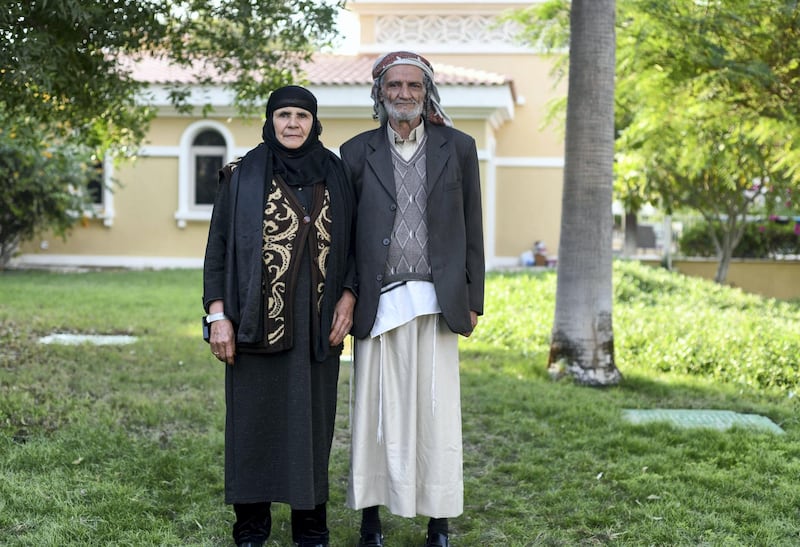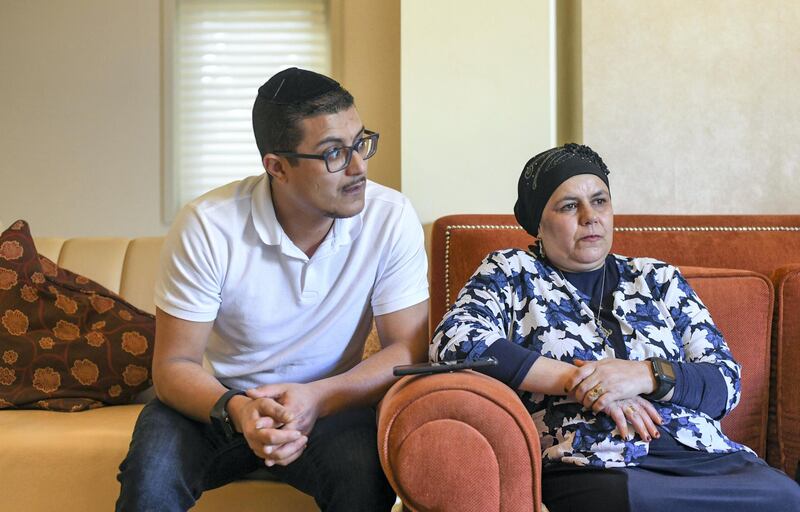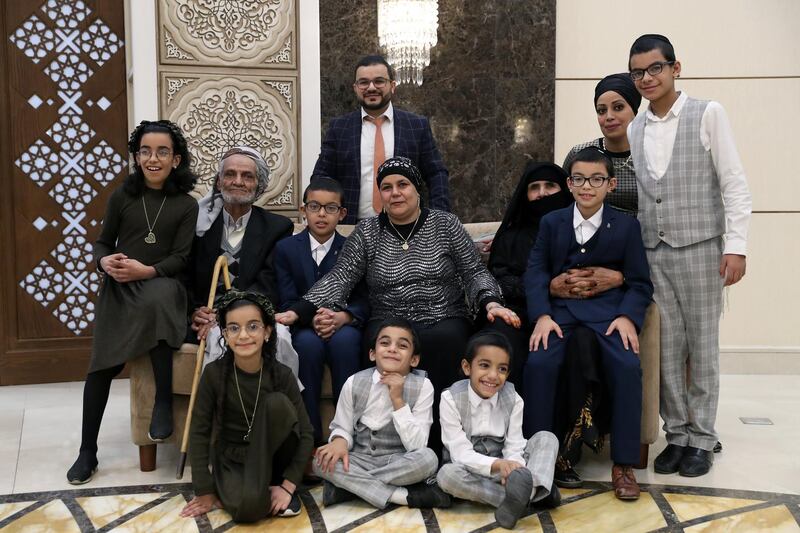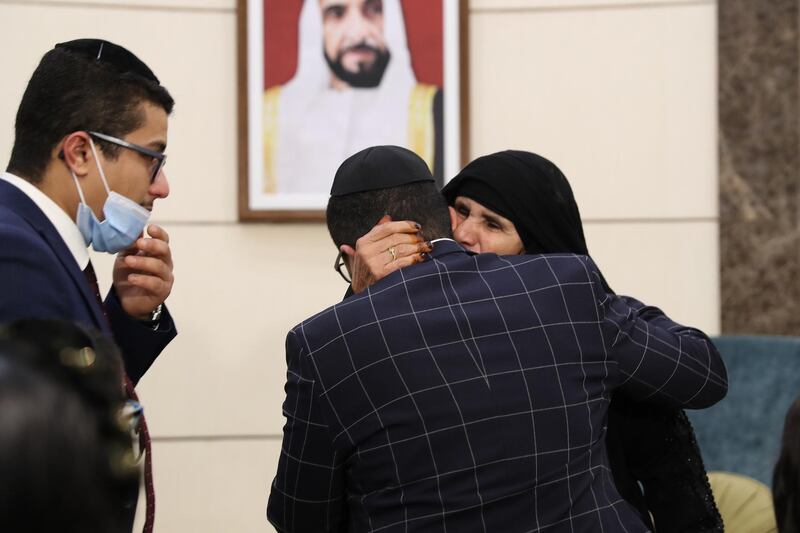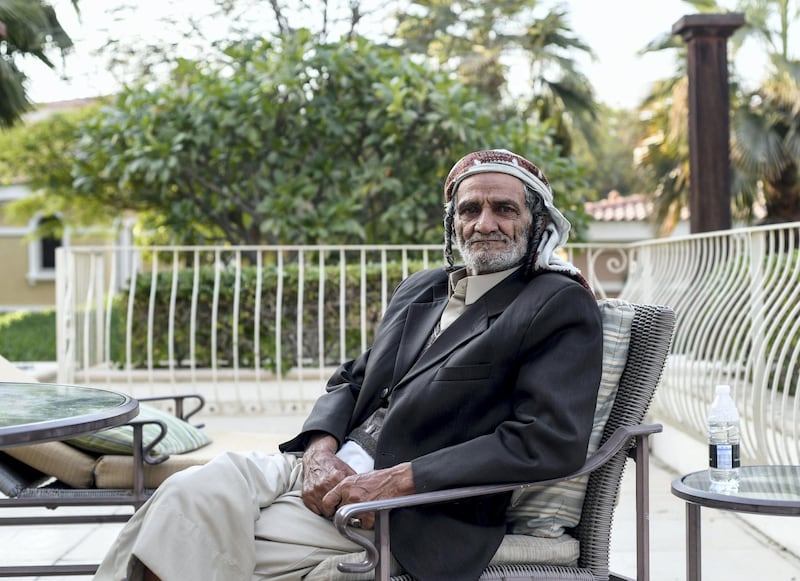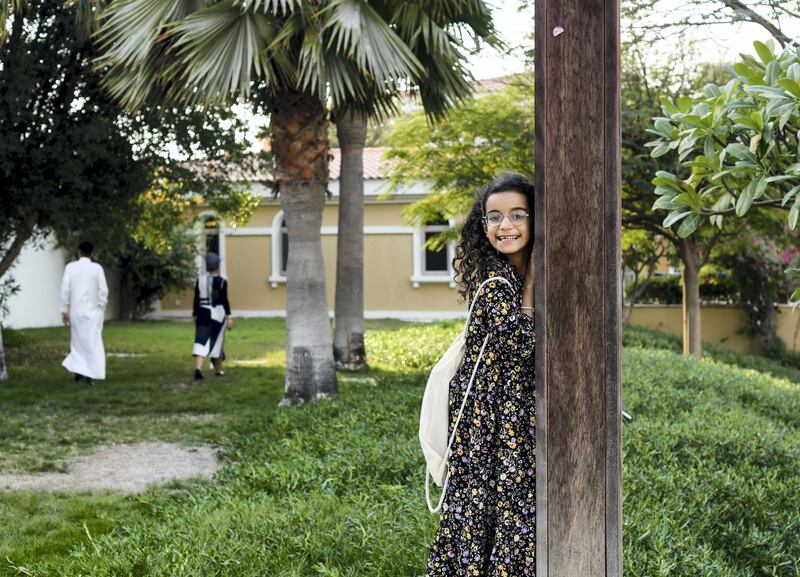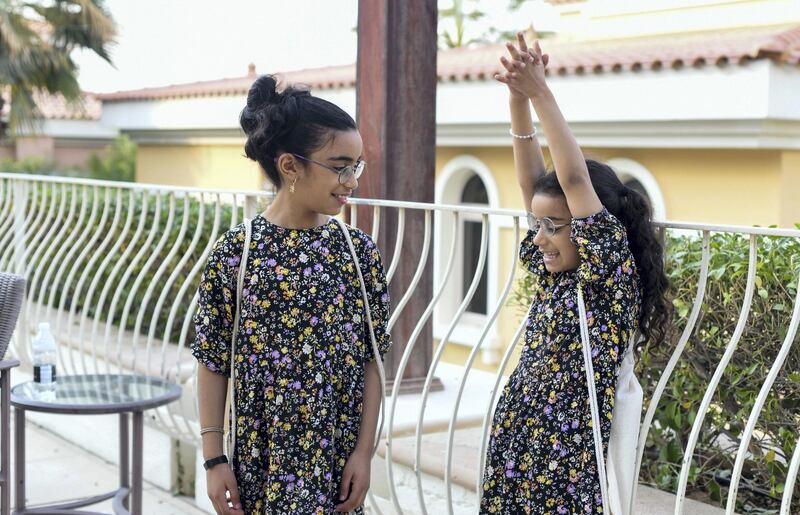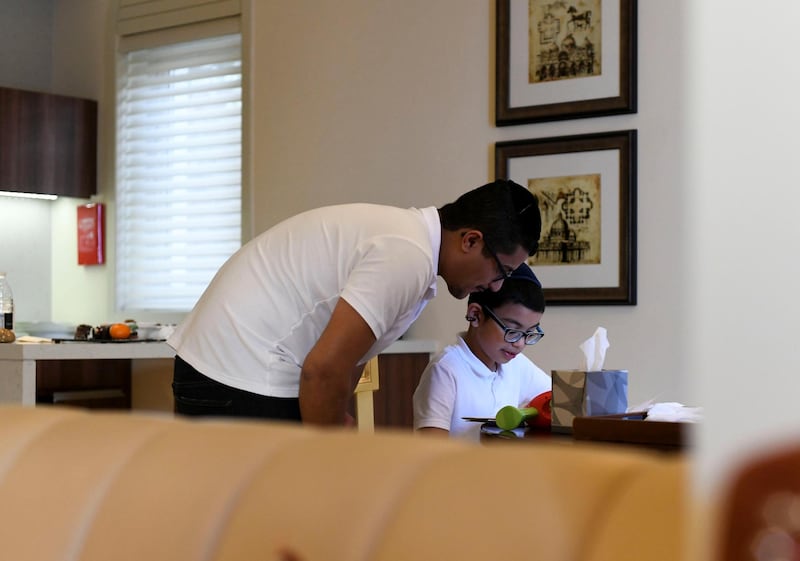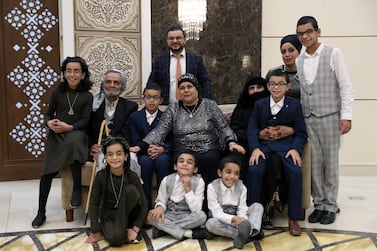A Yemeni Jewish family reunited in Abu Dhabi after decades apart told of how they escaped persecution in their home country after being spat on and shot at because of their religion.
The majority of the family fled Yemen for the UK two decades ago. Only the grandparents and uncle, until recently, stayed behind in the north-west city of Saada.
The uncle, Yusef Chabib, told The National of the family's plight and how grateful they were to the UAE government for bringing them together.
Mr Chabib, 45, said he was shot while sitting in front his shop in Yemen a few years ago for being identifiably Jewish. The men in the family wear kippahs and have long sidelocks, known as peyot.
He said he was lucky to survive the attack, which left scars on his legs.
“Yes, the situation was very difficult but we are lucky to be alive and grateful and blessed to be here in the UAE. We want peace and to live in peace,” Mr Chabib said.
The Houthi insurgency arose in Saada in the 1990s, when aggression against Jews began. The rebels went on to control other parts of north Yemen and would threaten and mistreat the Jewish population.
The uncle makes traditional Yemeni daggers, known as janbiya, to sell as handicrafts. The short, curved blades, with fine patterns on the hilt, are predominantly worn for traditional purposes, rather than for use as a weapon.
He also makes and sells watches and silver rings.
He is proud of his craft but said he would never use a dagger to attack someone.
“I live in fear but ... we don’t carry weapons or condone bloodshed,” he said.
Most of his family fled to London in the late 1990s but Mr Chabib stayed in his home country.
Jews have lived in Yemen for centuries. Their exact population is not known but tens of thousands were taken to Israel in 1949, a year after the country was established.
Jews in Yemen principally lived in Saada. But in 2007 many were forced to relocate to the capital Sanaa after threats from the Iran-backed Houthi rebels.
Yitzhak Fayez, who was a boy at the time, said Yemeni Jews were promised a safe haven in Sanaa. They were supposed to live in a gated and guarded housing complex under the protection of the central government.
“They took everything. They took our homes, our money and everything we owned and Sanaa was no better. They looted our homes and everything we touched was considered dirty,” he said.
Jews have been discriminated against by the Houthis for years.
The rebels used anti-Semitic slogans and chants in their marches and in 2018 even printed "death to America, death to Israel, curse the Jews" on Sanaa University ID cards for staff and students, according to The Jerusalem Post.
Mr Fayez, 35, now lives in London with his wife, five children, mother and siblings.
“Five families left the year the Houthis told us to leave but our breaking point came when they killed my grandmother’s brother. After that, there was no staying in Yemen for us,” he said.
They would probably never have looked back had it not been for the family members they left behind.
"London was safety for us but my mother's heart ached for her parents. We would see her crying for hours, praying that her parents wouldn't die before she saw them, especially after she found out that her mother was sick," he said.
Last month, after reading reports that the UAE government reunited a Yemeni Jewish family in Abu Dhabi, Mr Fayez and his brother, Israel, came to the city with the hope that they could see their uncle and grandparents again.
A few weeks later, the UAE government helped the remaining family members to travel from Yemen. It took 14 hours and they had to cross 20 checkpoints but, eventually, the family was brought together again.
“I now know what happiness truly is. My heart and eyes are full of joy,” said the family's patriarch, Sulaiman Chabib, 75.
“I told them it was a lie, that they were all lying to me, that I was never going to see my daughter again, but it turned out to be true. They weren’t lying.”
He met his great grandchildren, aged 6 to 11, for the first time.
"I used to cry and pray to God every day to help me see my parents. I feel like I am in a dream," said his daughter, Louza, 58.
Mr Fayez thanked the UAE for bringing the family together so quickly.
"Fifteen days after my brother and I arrived on December 27, we were united after decades of separation. It was like a dream," he said.
"We can't thank the government enough for everything they have done for us. Truly being in the UAE feels like being with family."
He does not know what the future holds but he hopes his grandparents can stay in the UAE.
“There is no Yemen. There is nothing there any more,” said Israel, 31.
